SOUTH PORTLAND — Imagine floating on the top of the ocean looking toward swells and floating gulls, and from the horizon seeing people walking toward you. Except they’re not walking on the surface of the water. As they draw closer, it’s clear they’re standing on paddle boards – groups of racers coming in waves.
Moving their arms across their bodies like synchronized dancers, the racers can be heard breathing hard as they pass.
This army of paddlers come together every Saturday evening in the summer from as far away as New Hampshire and the western mountains to race with elevated heart rates and a shared love of ocean adventure. It’s the Casco Bay Race Series held by Soposup, the only Maine surf shop that specializes in stand-up paddle boards. The race series off the South Portland coast shows how the sport has taken off in Maine.
“I don’t paddle nearly as much as I’d like. This is great, because you know once a week you will be out on the water,” said Kate Miles of Scarborough. “It’s about the culture and the community. People from all walks of life come to the races. I think this is a unique culture. People are honest and genuine. There are so many variables on the ocean: wind, tides, oil tankers.”
Stand-up paddle boarding, or SUPing, requires a craft similar to a surf board that is tethered to a leg and propelled with a long paddle. While even slow paddlers make it look easy, the work of balancing on the board requires having leg and stomach muscles constantly engaged.
When Rafael Adams, a former furniture maker, opened the South Portland stand-up paddle board shop in 2010, the sport was not widespread in Maine. Now it’s common in nearly every lakes district or coastal town to see people “SUPing.”
“When I first started four years ago and I would paddle Downeast, people would stare at me. And the next year it became quite ubiquitous to see paddle boards,” said Heidi Henninger of Yarmouth, one of the weekly racers. “It’s a wonderful form of exercise. It’s no impact. It’s full body. You can go as aggressively as you want and get your heart rate up to 160, or you can go leisurely and look around on top of the water.”
Adams encourages the craze with his series, which often draws more than 20 racers.
At the last race of the season, 28 people who previously were strangers before joining the series gathered at Willard Beach from 4 to 5 p.m. and instantly started chatting. They told jokes and clamored with anticipation of going out into the ocean 13 and 15 at a time to paddle toward the islands and lighthouses as hard as they could.
Luke Vicens comes from the furthest away, traveling from Durham, New Hampshire. After he got a board in 2011 he was looking for SUP activities. He entered a few races in other states but said Adams’ SUP series is the only one in New England, and it’s nice to paddle with the same group every week, sometimes in high swells and stiff winds.
“I just like the people. Everyone paddles hard. There is a little trash talk, but it’s all in good fun,” Vicens said.
Racers are required to wear a personal flotation device. Many wear the inflatable kind, which comes in a small hip pack.
“I do things out (on the ocean) I wouldn’t be able to do by myself,” Henninger said. “It’s a nice group. Everyone watches out for everyone else. People will stop and help someone who falls off. There is not a group like this in Maine.”
The series used to just race around Cushing Island, but Adams wanted to add variety. So now the course is different each week, and once a year they race for a solid 90 minutes around Peaks Island.
Last week, they left Willard Beach and headed down the coast toward Portland Island Light, circled a buoy there, then headed off the coast to Ram Island Light. The course took the fastest racer 58 minutes, while the slowest needed 80 minutes.
Jeff Warren of Auburn, who has dystonia – a condition closely related to Parkinson’s disease that causes muscles to tighten up – said SUP paddling helps to keep his muscles loose because he works them hard. The race series gives him a goal to work toward, and a like-minded community to celebrate ocean travel with.
“When you’re on the water, everyone is very competitive. When you’re back on shore, everyone waits for you, right up to the last person,” said Warren, 55.
As paddlers arrived at Willard Beach last Saturday, the slowly growing crowd of SUP racers cheered every finisher.
In the years ahead, Adams hopes to make the series something more. He envisions a nonprofit that would not only encourage responsible and safe paddling, but also spread awareness of environmental issues, such as plastics in the ocean.
Aaron Hughes of Bethel, who won the final race, loves the idea.
“He sent out an email about that. I think it ties in. I think it will grow (the race). We see it firsthand all the time, bits of plastic in the ocean,” Hughes, 31, said of the marine debris he sees while paddling.
Adams said the nonprofit would be run by a board of directors made up of racers who could choose the race venue and distance, and different ways to raise public awareness about ocean pollution.
“At some point, you have to step up and assume responsibility, because you have this vehicle to get the message out. We’re out here every weekend,” Adams said at the conclusion of the final race. “I am a paddle-board geek. My goal is to get people on paddle boards, because it’s the most fun thing I’ve ever done. Look at this: There are paddle boards all over the beach, everyone here is talking to someone. It’s just super fun.”
Send questions/comments to the editors.


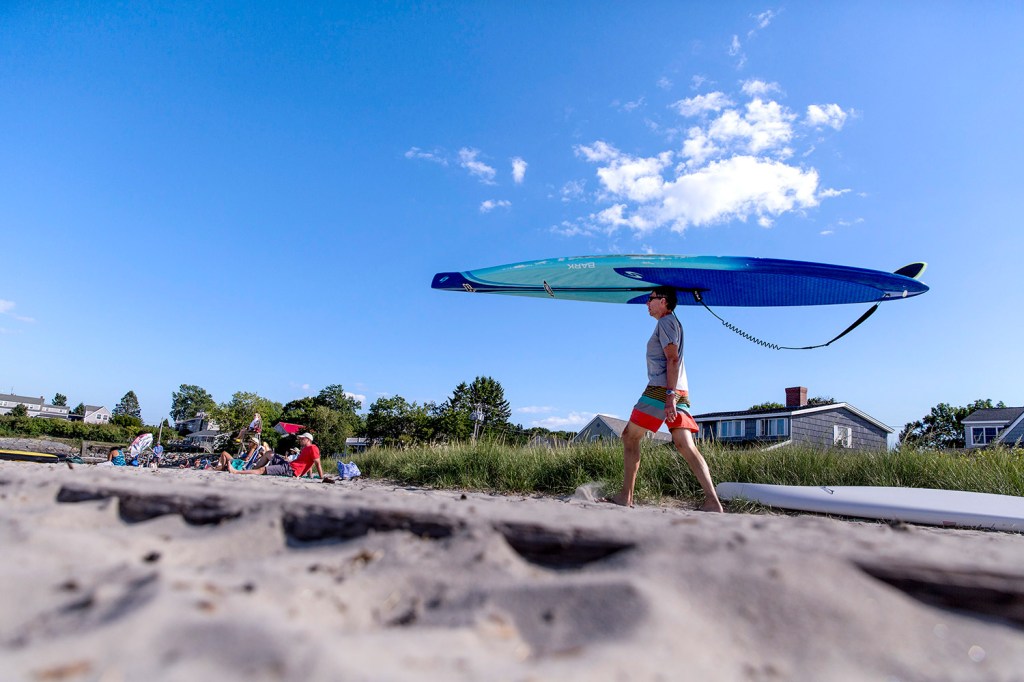
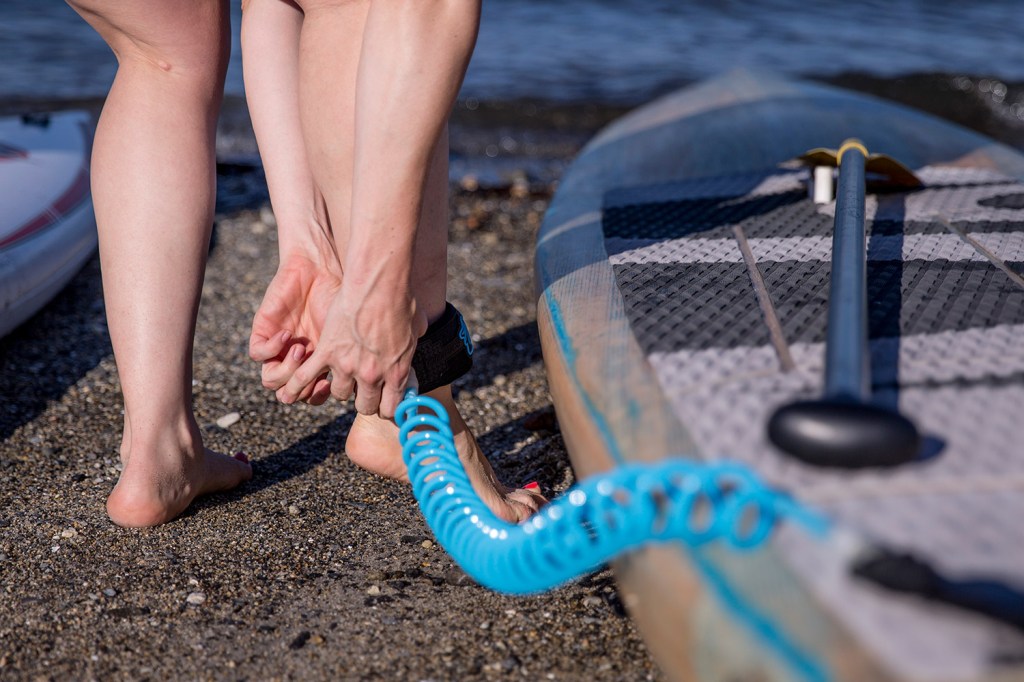
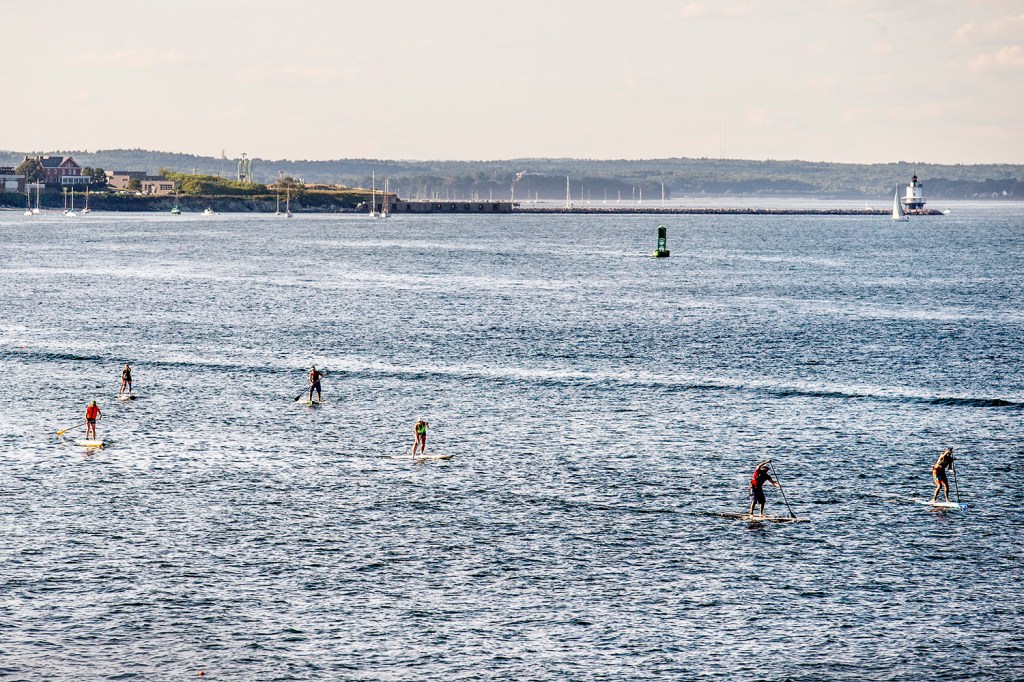
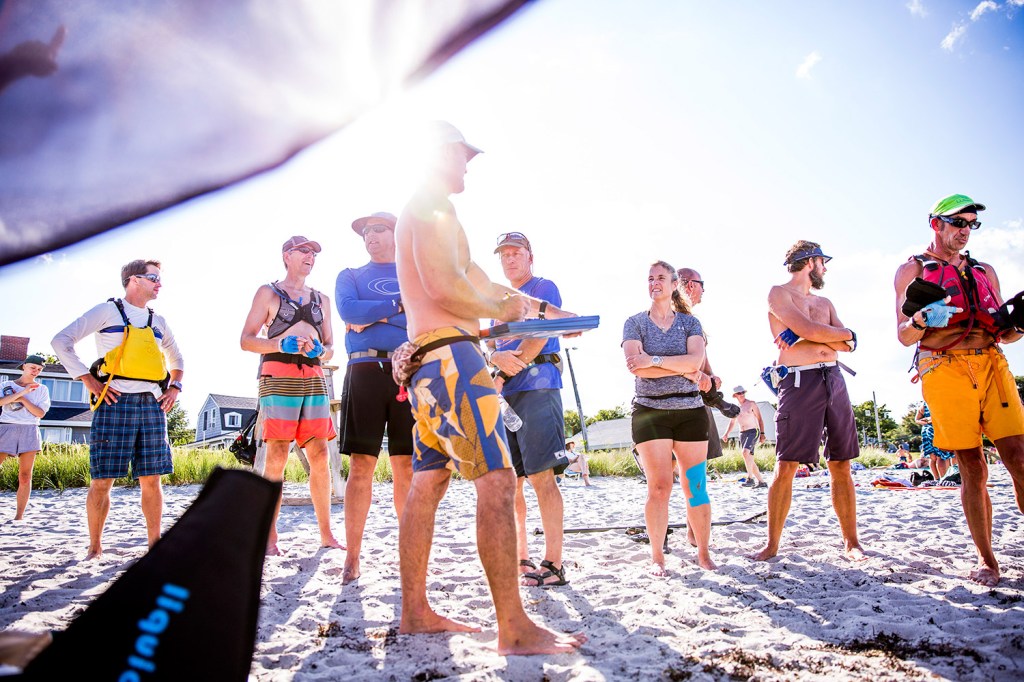

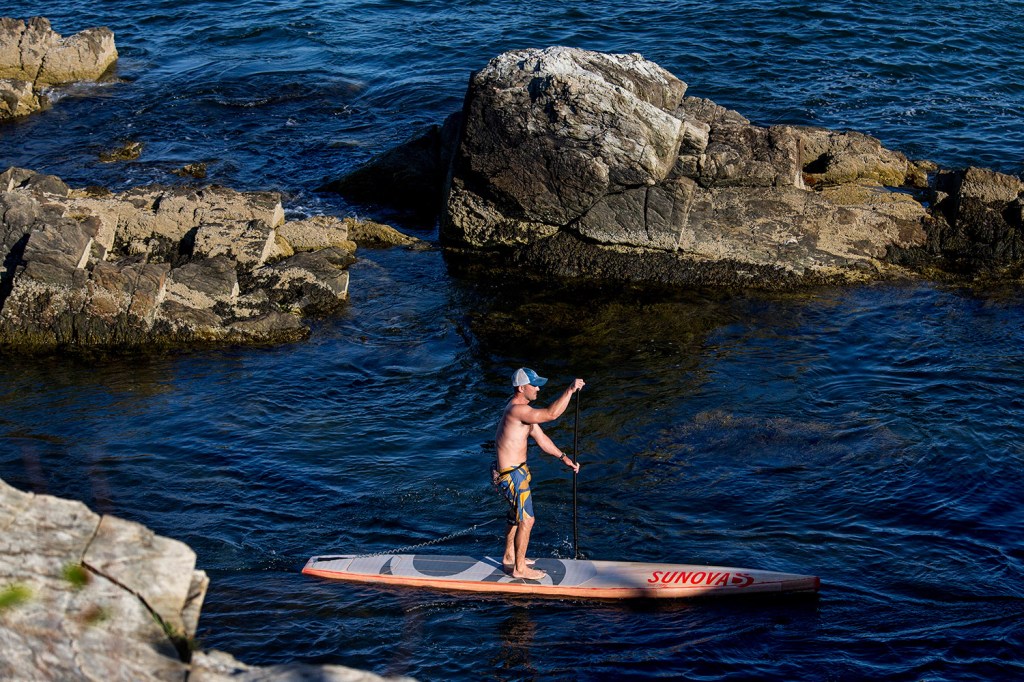
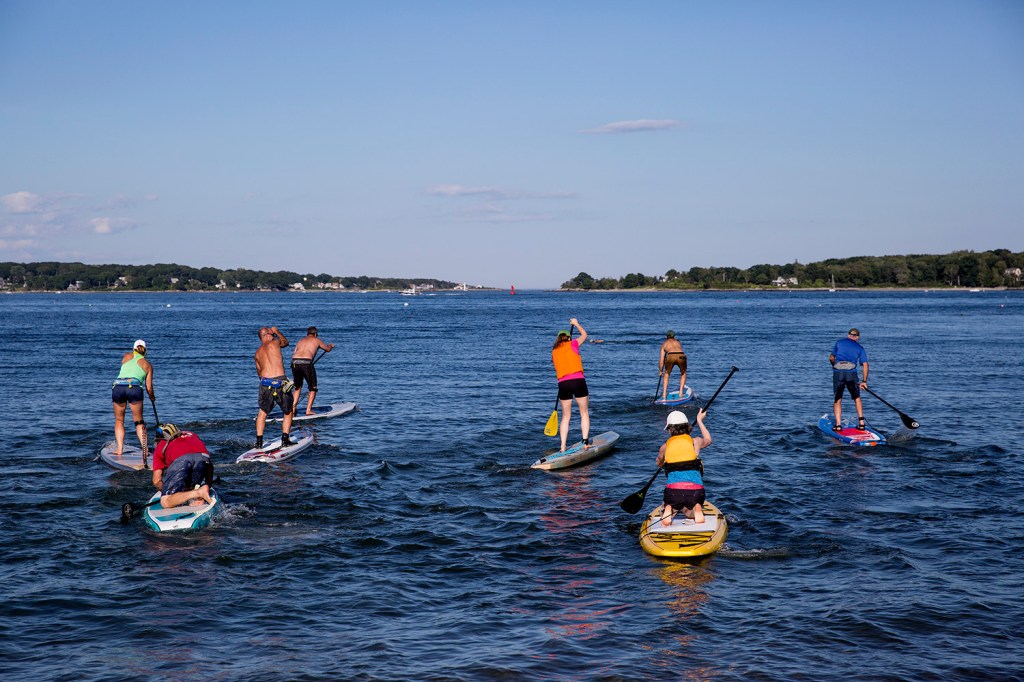
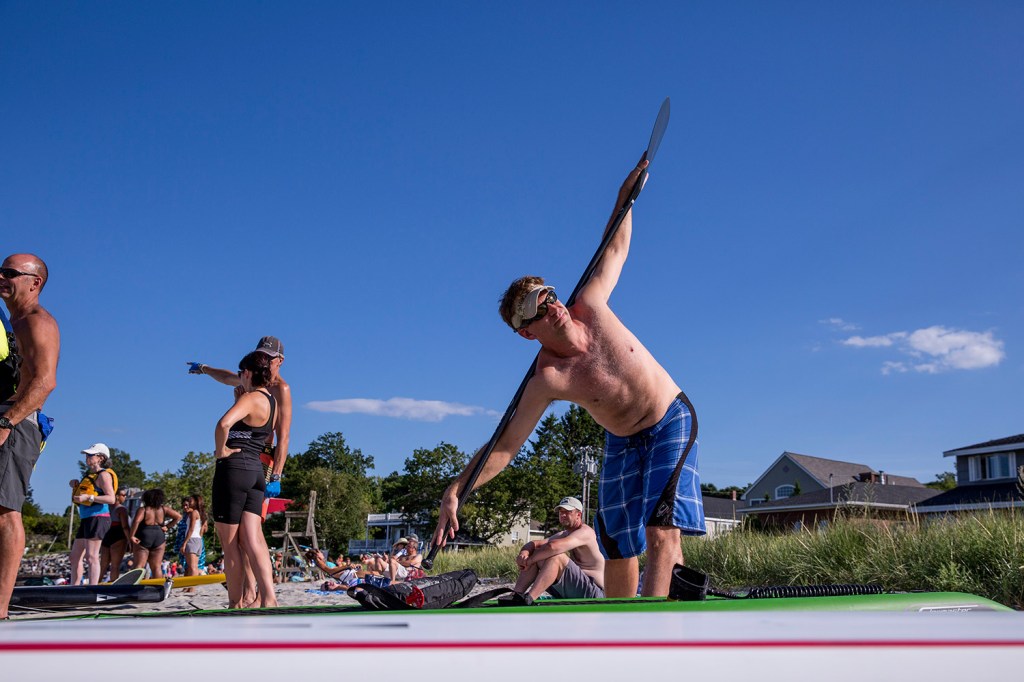

Comments are no longer available on this story